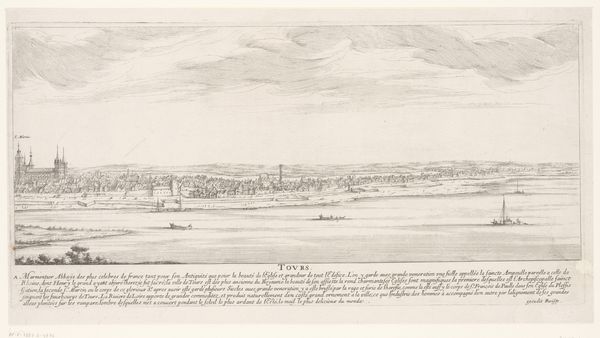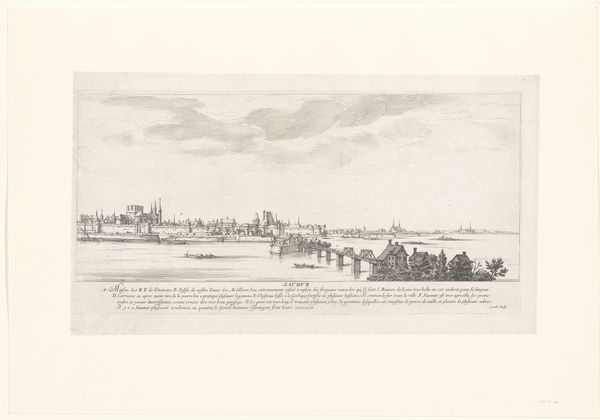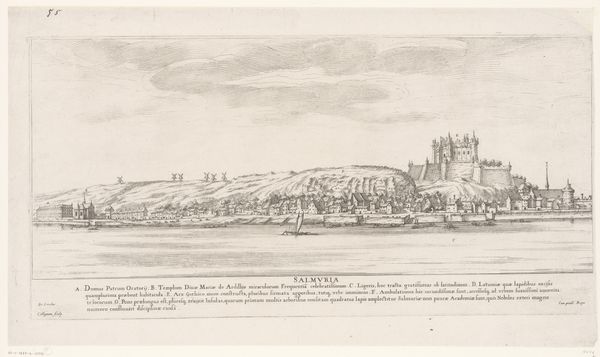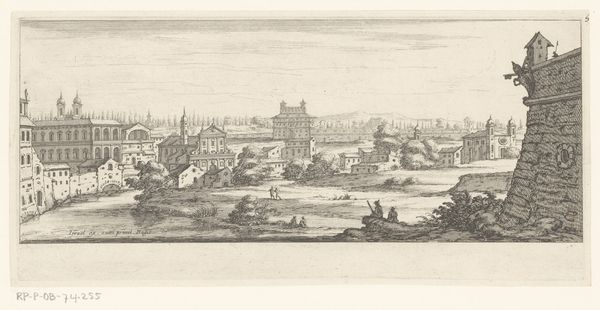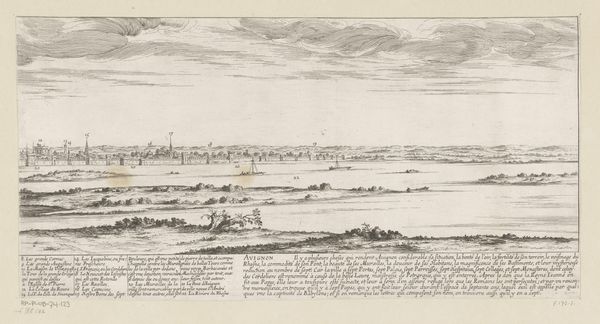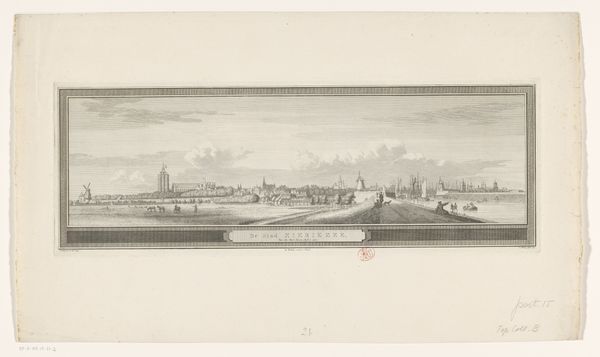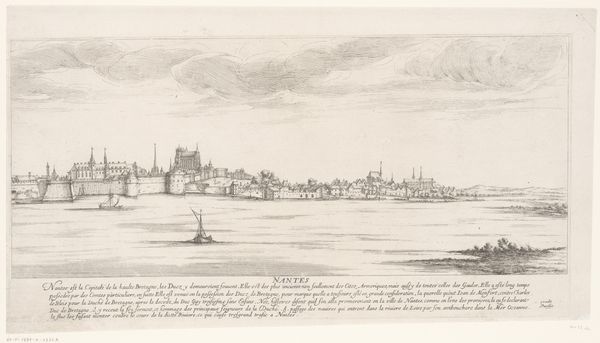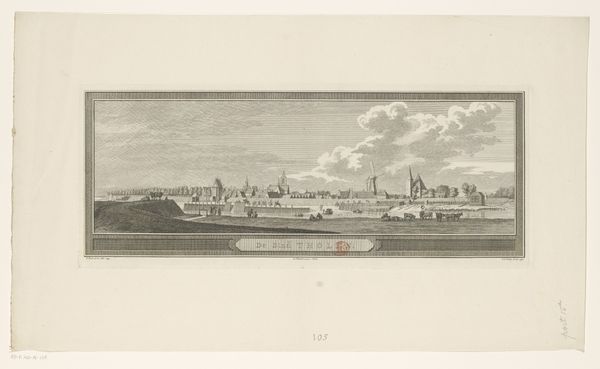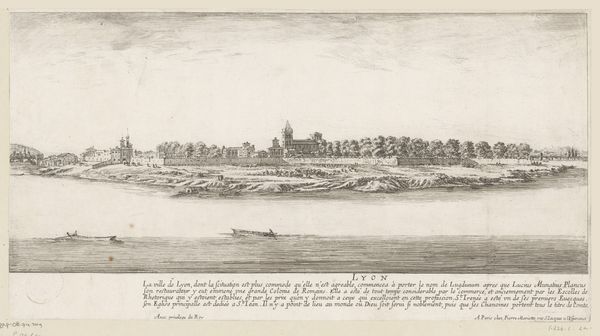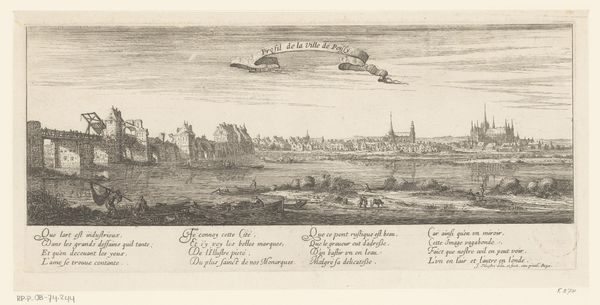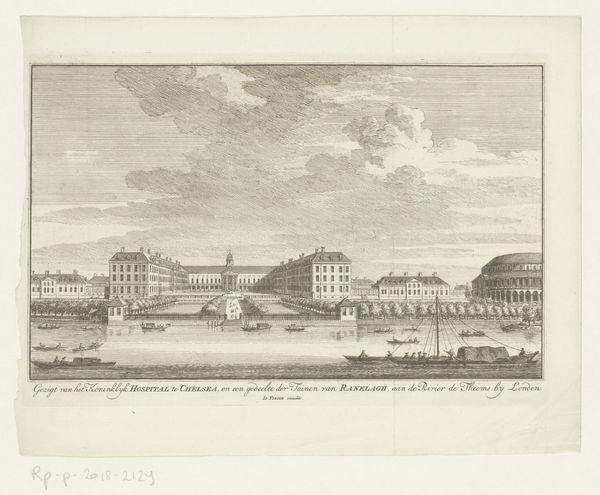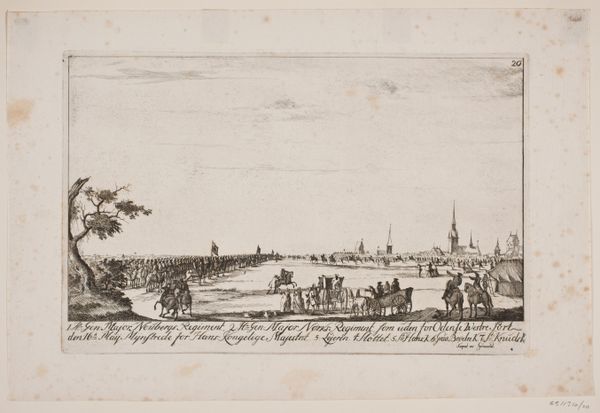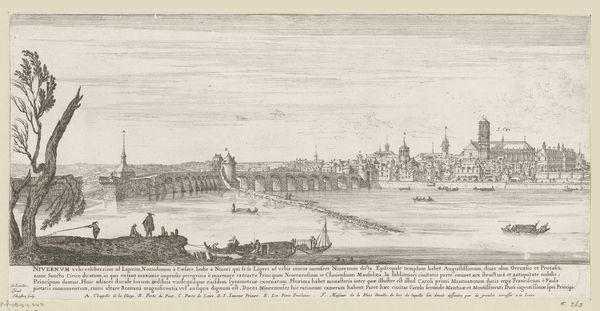
print, etching
#
baroque
# print
#
etching
#
old engraving style
#
landscape
#
river
#
etching
Dimensions: height 205 mm, width 411 mm
Copyright: Rijks Museum: Open Domain
Editor: This etching, “Zicht op Saint-Cloud” by François Collignon, from around the mid-17th century, feels like a very formal landscape. It's precise, almost architectural in its depiction of the town. What symbolic weight does Saint-Cloud hold in this image? Curator: Ah, an excellent question! Consider that landscapes during the Baroque period weren’t just pretty scenery; they were often statements of power and order. The formal garden, prominently displayed, is a key symbol. Can you think about what a perfectly manicured garden might represent? Editor: Control? Authority? Like, nature tamed to reflect human will? Curator: Precisely! And in this case, Saint-Cloud was a favored residence of French royalty. Collignon presents not just the place, but the idea of royal dominion, an assertion of their capability to bring order and beauty from the natural world. It’s a visual claim to legitimacy, using symbols that would be readily understood by its 17th century audience. Look at the way the river leads our eye towards the heart of the town—what does that directionality imply to you? Editor: Maybe that everything flows from, or towards, Saint-Cloud? The city as a source, perhaps? I never really thought about landscapes having such direct symbolic intention! Curator: It's a fascinating area of study, isn’t it? Images are rarely neutral; they are laden with cultural memory, telling us much about what the artist, and their audience, valued.
Comments
No comments
Be the first to comment and join the conversation on the ultimate creative platform.
